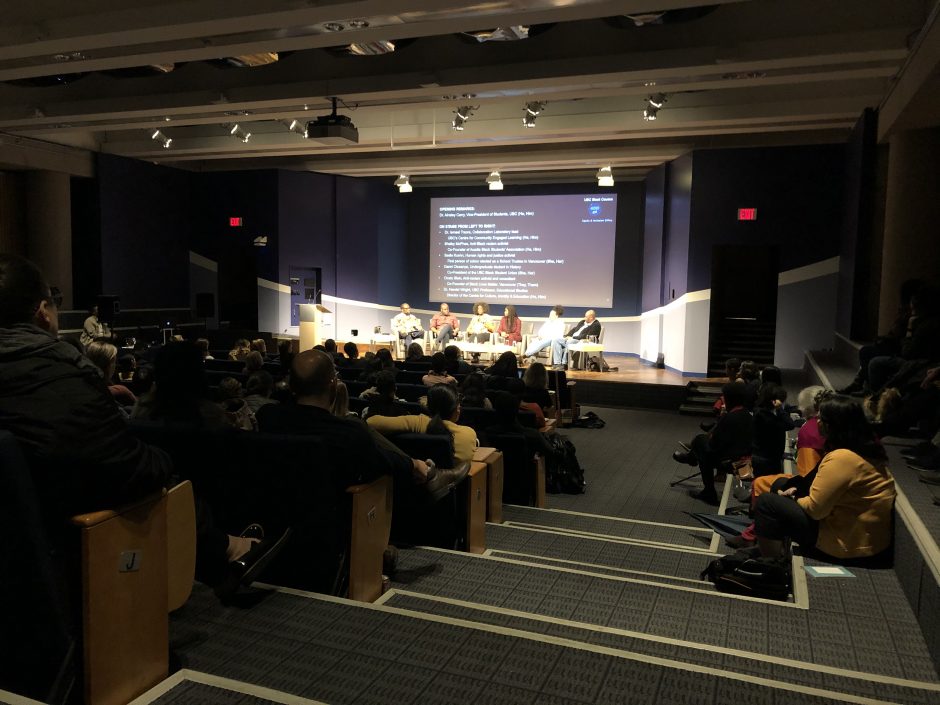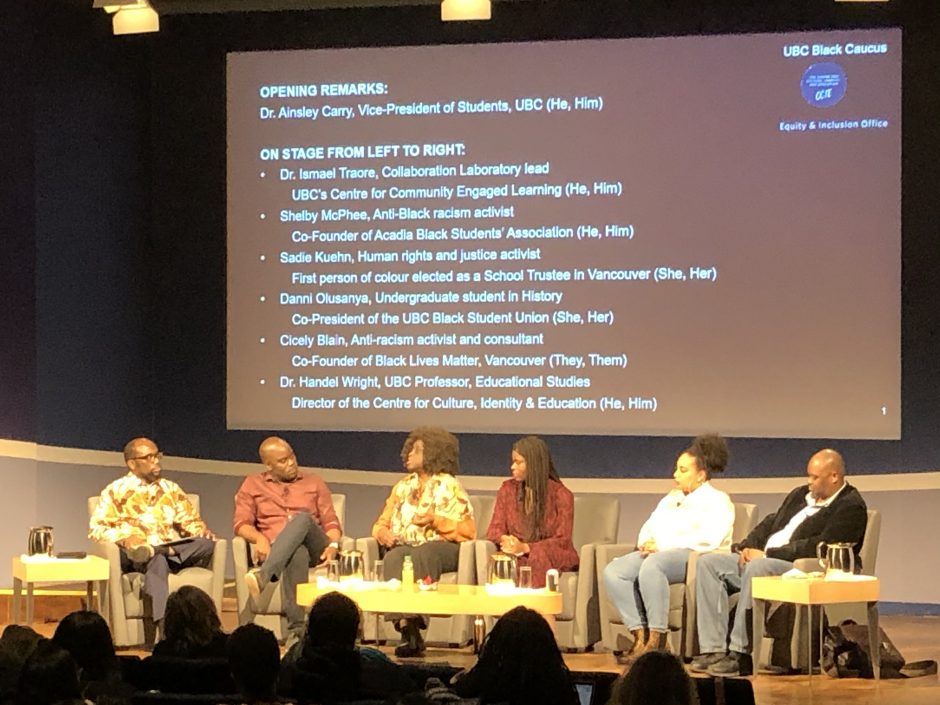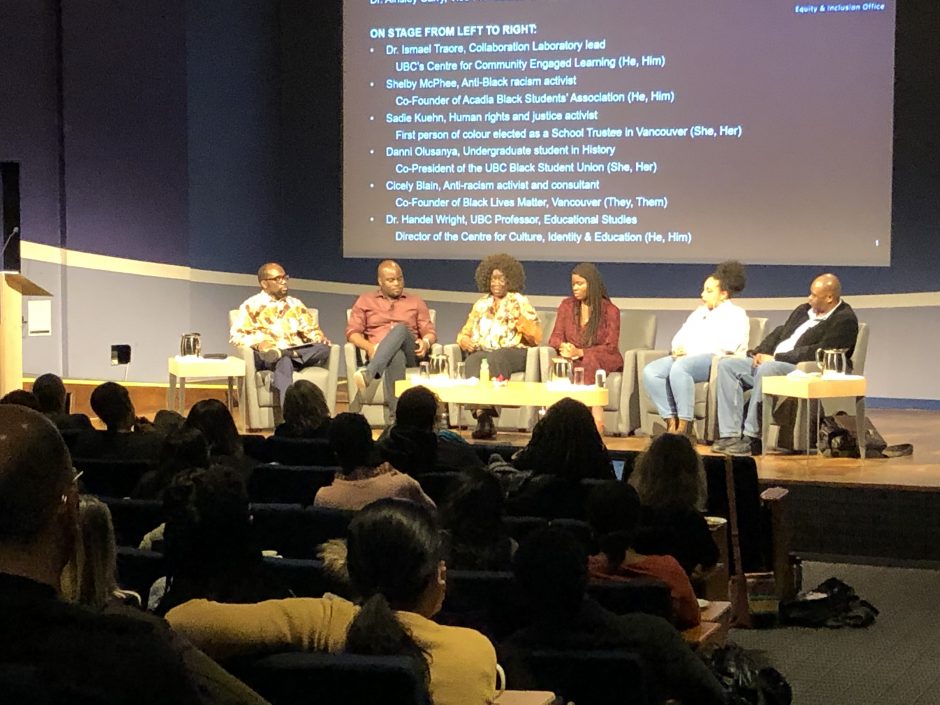Event Details
Recent and ongoing incidents in Vancouver and Canada illustrate that anti-Black racism is very much a local reality. Black communities that include activists, artists and academics have a long history of working to create new narratives, analyses and immersive experiences that shift this reality.
This event highlights the thinking and efforts of Black communities, and aims to expand the public conversation and prompt non-Black communities to act in effective solidarity to dismantle anti-Black racism.
Our special guest for this event is Shelby McPhee, a recent graduate of Acadia University, who will share stories and comments on how to recognize and address anti-Black racism.
The event is jointly hosted by the UBC Black Caucus, Centre for Culture, Identity and Education, and the Equity & Inclusion Office.
Opening and welcome:
- Dr. Ainsley Carry, Vice-President of Students, UBC
Speakers:
- Shelby McPhee, recent Acadia University graduate with a Masters of Arts in Politics
- Danni Olusanya, UBC student in History, Co-President of the Black Student Union
- Cicely Blain, anti-racism activist and consultant, Co-founder of Black Lives Matter Vancouver
- Sadie Kuehn, community activist and writer, first Person of Colour elected to a School Board in BC
- Dr. Ismael Traore, Collaboration Laboratory leader, UBC’s Centre for Community Engaged Learning
- Dr. Handel Wright, UBC Professor in Educational Studies; Director of Centre for Culture, Identity & Education
About Shelby McPhee
Shelby McPhee is a recent graduate of Acadia University who has been speaking out publicly on Anti-Black racism after he was racially profiled at Congress 2019 held at UBC last summer.
Check out this article about the event posted in the Ubyssey “Panelists discuss anti-Black racism on campus — eight months after racial profiling incident at UBC”
What is anti-Black Racism?
As defined by Canada’s Anti-Racism Strategy (2019-2022):
Prejudice, attitudes, beliefs, stereotyping and discrimination that is directed at people of African descent and is rooted in their unique history and experience of enslavement. Anti-Black racism is deeply entrenched in Canadian institutions, policies and practices, such that Anti-Black racism is either functionally normalized or rendered invisible to the larger white society. Anti-Black racism is manifested in the legacy of the current social, economic, and political marginalization of African Canadians in society such as the lack of opportunities, lower socio-economic status, higher unemployment, significant poverty rates and overrepresentation in the criminal justice system.


